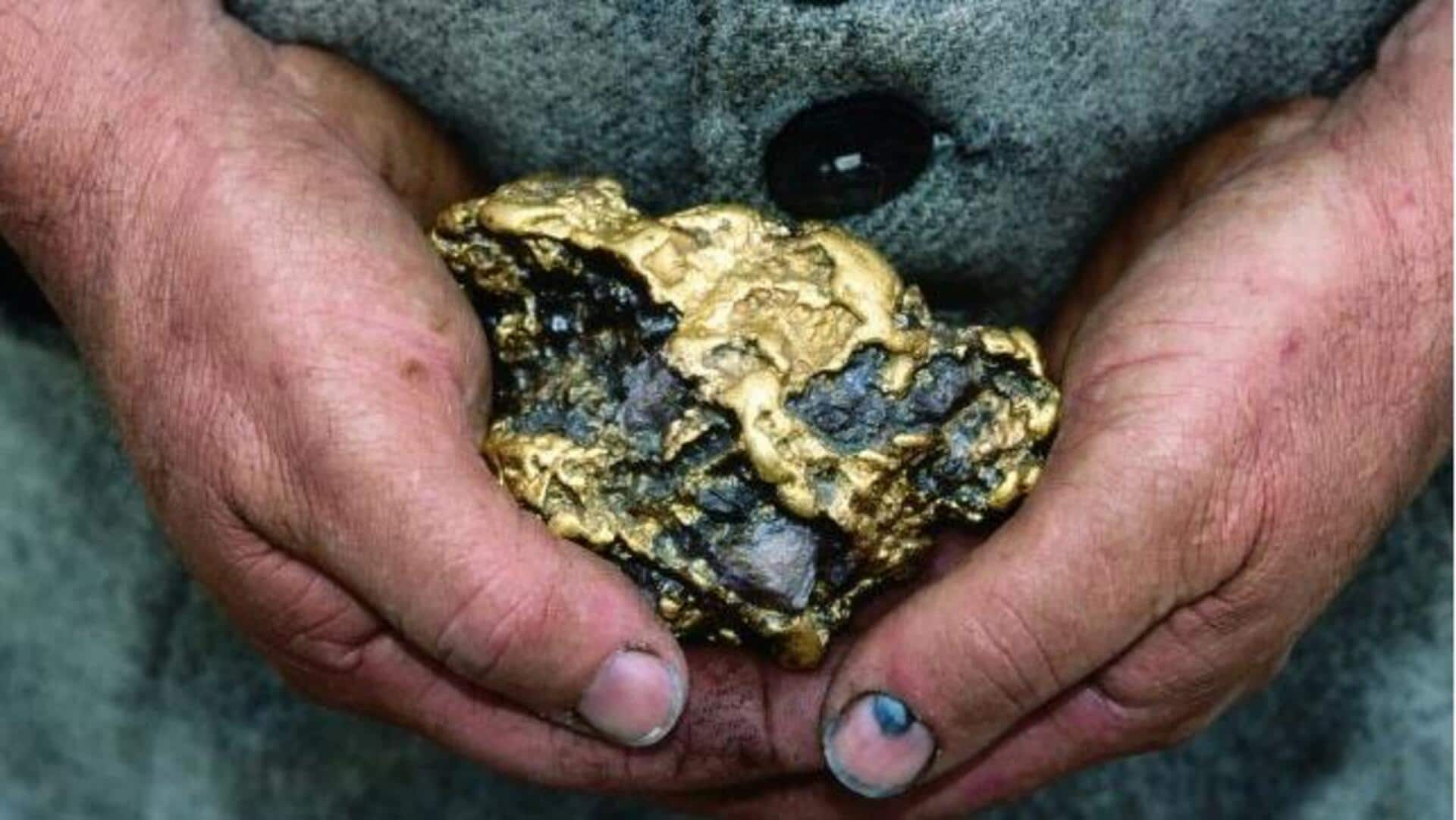
Can nuclear fusion produce gold? This start-up is trying
What's the story
California-based start-up, Marathon Fusion, has proposed a revolutionary method to produce gold using nuclear fusion technology. The process involves transforming one form of mercury into another, through the radioactivity from neutron particles in a nuclear fusion reactor. This then decays into a stable form of gold. The team estimates that a fusion power plant could produce several tons of gold per gigawatt of thermal power in just one year.
Decay details
How mercury-198 is transformed into gold
The production of gold through this method is dependent on the decay of mercury-198, which is bombarded with neutrons to create the radioactive isotope mercury-197. This isotope then decays into gold: gold-197. However, a large neutron flux is needed to trigger this decay sequence. This can be achieved using a standard fuel mix for fusion reactors, deuterium and tritium (both forms of hydrogen), to generate energy in a fusion reactor's plasma.
Estimation hurdles
Estimates based on a fusion reactor's 'digital twin'
Marathon Fusion has been using a fusion reactor's "digital twin," a computer model that simulates the physics of the fusion reaction and radioactive processes, to come up with its gold production estimates. However, this method has its limitations as it needs to be validated against a real commercial fusion reactor, which doesn't exist yet. There are many challenges to overcome before scientists can commercialize such reactors.
Reactor evolution
Current status of nuclear fusion research
The UK-based JET (Joint European Torus) project is one of the most advanced fusion experiments, but it has only produced small amounts of energy. However, researchers in the UK have come up with a new way to control exhaust plasma in fusion reactors. A prototype of this new reactor concept, called Spherical Tokamak for Energy Production (STEP), is expected to be ready by 2040.
Production challenges
Gold produced would be radioactive, need to be managed
While the theoretical possibility of producing gold from mercury in a fusion reactor exists, the assumptions used by Marathon Fusion in its digital twin studies remain untested until commercial fusion reactors are realized. Any gold produced at such a reactor would initially be radioactive, classifying it as radioactive waste that would need to be managed for quite some time after production.